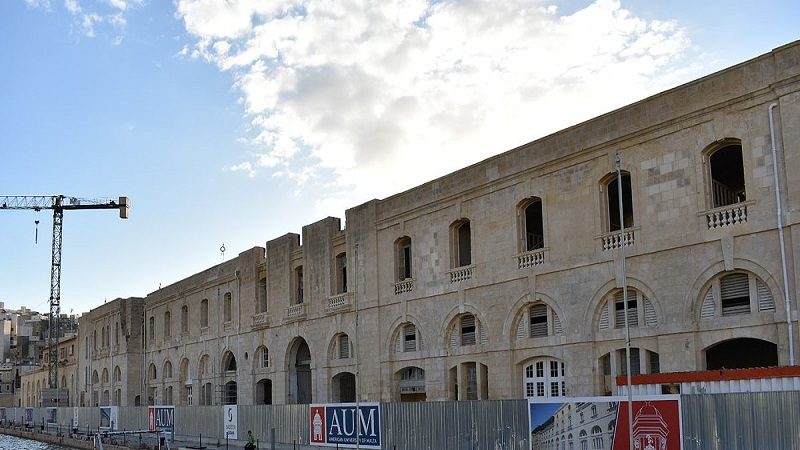On 14 December 2015 Parliament held a marathon session discussing a motion to grant a 99-year emphyteusis to Sadeen Education Investments Limited on two parcels of public land, one in Bormla and the other at Zonqor Point.
During the parliamentary debate education minister Evarist Bartolo tabled the deed between the Government and the developers, which bound the latter to build and operate the two campuses of the American University of Malta with certain conditions.
In addition to the contract the minister also tabled a study updating the original economic impact assessment for the project, which had been used to justify the project to the public. This updated study showed that the project would proceed at a much slower pace than originally predicted.
Surprisingly the study makes a number of projections which demonstrate that Sadeen Education Investments Limited could not meet the conditions stipulated in the contract tabled during the same session. Moreover it is clear the Government had knowledge of this fact at the time it presented the motion to transfer the land.
The contract between the Government and Sadeen Education Investments Limited was signed on 11 March 2016. This contract specifies that the firm has 24 months from this date to build an American University.
To achieve this, a minimum of five colleges have to be completed by 11 March 2018. According to the aforementioned study and the plans submitted to the Planning Authority so far, two of these colleges will be built as part of the Bormla campus, while the other three will be built as part of the Zonqor campus.
Due to the low student intake at the Bormla campus, the construction of the Zonqor campus seems to be temporarily on hold, with the Prime Minister even going so far as stating that the latter will not be built until the Bormla campus is operating at full capacity on 20 November 2017. But this means that there are less than three months to go before Sadeen Education Investments Limited will be in breach of contract.
The contract also specifies that the American University shall attract approximately 4,000 students by the fourth year from 11 March 2018. In order to achieve this target, the American University of Malta has to attract approximately 1,000 students each year.
However the Government’s own study shows that the projected enrolment will be of 1,160 students by the contract deadline of 11 March 2022, which is slightly more than a quarter of what was agreed. The figures extracted from the study are shown in the following table.
| Due Date | Required Total Student Enrolment | Projected Enrolment |
| 11 March 2019 | 1000 | 120 |
| 11 March 2020 | 2000 | 360 |
| 11 March 2021 | 3000 | 680 |
| 11 March 2022 | 4000 | 1160 |
The study also makes it clear that the required student enrolment of 4,000 students will not be met before the eighth year of operation, thus taking twice as long as allowed by the contract. Taken together this means that Sadeen Education Investments Limited necessarily must be in breach of contract in the coming years.
What happens if Sadeen are in breach of contract?
The contract provides for a number of ways in which Sadeen Education Investments Limited could be in default of their obligations, in which case the Government will be entitled to dissolve the contract. The two clauses which are of greatest interest in the light of what we have said are the following.
Firstly, Sadeen Education Investments Limited will be in default if they ‘fail to commence operation of the project’, which is defined as being specifically in breach of clause 12.3 of the contract. This clause requires the developers to complete the ‘Project’ by 11 March 2018, which in turn requires them to have five colleges in operation by that date.
Secondly the Government could claim that there was a breach of one of the material conditions of the deed. One such breach could be the failure to enrol approximately 4,000 students by the due date of the 11 March 2022. As we have already seen the Government study projects that only about a quarter of this enrolment will be met.
It is not clear why the Government asked Parliament to approve the contract when studies which were in its possession at the time show that the contract could not be met by the company in question. It is quite possible that in similar vein to other white elephant projects embarked upon by previous administrations, the contract conditions were never meant to be enforced.













